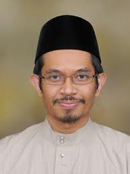
 |

His articles are mostly on Shafii fiqh and very detailed, useful and practical as a learning method, and he is one of those scholars of Islam, who can combine the sciences of Fiqh and Tasawwuf, just as Imam al-Malik (may Allah be well pleased with him!) said:
“man taSawwafa wa lam yatafaqqah fa-qad tazandaqa
wa man tafaqqaha wa lam yataSawwaf fa-qad tafassaqa
wa man jama'a bayna-humA fa-qad taHaqqaqa.”Whoever studies Tasawwuf and does not study Fiqh will be a heretic. Whoever studies Fiqh and does not study Tasawwuf will be corrupted. Whoever combines the two will attain to the truth.
 Shaykh Afifi al-Akiti is KFAS Fellow in Islamic Studies at the Oxford Centre for Islamic Studies, and Islamic Centre Lecturer in Islamic Studies at the Faculty of Theology, University of Oxford, and is a Fellow of Worcester College, Oxford. He is the first ever Malay to be appointed to such a position in this world famous University.
Shaykh Afifi al-Akiti is KFAS Fellow in Islamic Studies at the Oxford Centre for Islamic Studies, and Islamic Centre Lecturer in Islamic Studies at the Faculty of Theology, University of Oxford, and is a Fellow of Worcester College, Oxford. He is the first ever Malay to be appointed to such a position in this world famous University.
Dr al-Akiti completed his DPhil in Medieval Arabic Philosophy from Oxford University as a Clarendon Scholar in 2008. His thesis identifies and systematically considers for the first time a group of philosophical writings, called the Madnun corpus, attributed to Islam's greatest theologian, al-Ghazali (d. 505/1111) - his discoveries are based on a painstaking survey of nearly 50 medieval Arabic manuscripts. Besides acquainting scholars with this remarkable new body of source material, his three-volume study presents a critical edition of the most advanced and technical work of this corpus, the manual on metaphysics and natural philosophy called the Major Madnun. (Wikipedia)
He was born in Malaysia and educated in various madrasas with a long tradition in Shafii fiqh in East Java.
Among his most well known teachers are:
Shaykh Muhammad Yasin al-Fadani,
Shaykh Ibn Mahfuz al-Hajini,
Shaykh Ibn Ashmuni al-Jaruni
and Habib
'Aydarus al-Habshi.
He has translated various works in Malay as well as English; mostly
textbooks that make up the curriculum of a Classical Islamic education,
including Imam al-Bajuri's commentary on the Jawhara, Imam Nawawi
al-Bantani on the Jami'a and his commentary on the Bidaya of Imam
al-Ghazali. He has travelled widely, and notwithstanding the specific
ijazas from his training, has also received general ijazas (for tabarrukan)
from teachers beyond his homeland.
Dr Afifi al-Akiti, Islamic Centre Lecturer in Islamic Studies at the Faculty of Theology and Fellow of Worcester, was appointed as a Privy Councillor to the State of Perak, Malaysia. He received the instrument of appointment (watikah) from the Crown Prince of Perak, Raja Dr Nazrin Shah, at the 171st Conference of the Privy Council on 22 April 2010. One of the main duties of the Council is to advise on the exercise of prerogative powers assigned to its constitutional monarch, the Sultan of Perak, in matters pertaining to the Islamic religion and Malay custom, in one of the oldest royal states of Malaysia.
xL =broken link 2020-10-03: http://www.utusan.com.my/utusan/info.asp; Syed Jaafar, Muhammad Afifi dilantik ahli majlis MAAIAMP
• Al-Maqal al-Ma'thur fi al-Qawl al-Mashhur
• Contaminated Animal Feed
• Defending the Transgressed: Mudafi' al-Mazlum ![]()
![]()
![]()
• Hisab & Ru'ya or Matla' al-Budur (moonsighting)
• ʿInan al-Bayan fi Nisf Sha'ban
• Kissing the Thumbs, etc. during Adhan?
• Lobsters and "Sea" Crabs
• Man Eating Man-Eating Sharks?
• Mas'alatan Muhimmatan 'Burnt Out'-an: Socks and Beards ![]()
• On the Risala and the Appendices of al-Umm
• Placenta and Umbilical Cord Tahiratun
• Rescue From The Potential Injustice Of Free Marriage Contracts
• Riba & Investing in Shares
• Tahqiq Qira'at al-Fatiha min Tabyin Aqwal al-Qadima
• Taghyir al-Niyya from Fasting
• Tajaddud Nikah on account of Wali Hakim?
• Tartib al-Nawafil wa-l-Rawatib
• The Meaning of Nafs
• The ʿAmal of the Living for the Dead
• Tuhfat al-Hidaya fi Takmil al-Tahara
• Zakat al-Fitr II: Potato?
• Abstract: The Madnūn of al-Ghazālī:
A Critical Edition of the Unpublished Major Madnūn
with Discussion of His Restricted, Philosophical Corpus ( pdf )
NB.
There are also two important texts elucidating
and commenting on the above fatwa (Defending the Transgressed):

vs.6.2